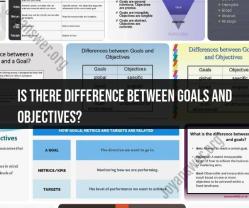What is an ethical management program?
An ethical management program is a systematic and comprehensive framework implemented within an organization to promote ethical behavior, integrity, and responsible decision-making among its leaders, managers, and employees. It encompasses various components and objectives aimed at embedding ethical values into the organizational culture and operations.
Components of an Ethical Management Program:
Code of Conduct and Ethics: This document outlines the organization's values, principles, and expected behavior. It serves as a guide for employees to understand the ethical standards and expectations.
Training and Education: Regular training sessions and educational programs are conducted to raise awareness, enhance understanding, and provide guidance on ethical decision-making.
Leadership Commitment: Ethical management programs require visible support and commitment from top-level executives and leaders within the organization. They set the tone for ethical behavior and serve as role models.
Ethical Risk Assessment: Identifying potential ethical risks and vulnerabilities within the organization allows for proactive measures to mitigate these risks.
Whistleblowing Mechanisms: Establishing confidential reporting channels encourages employees to report unethical behavior without fear of retaliation.
Ethical Communication: Clear and open communication channels facilitate discussions on ethical dilemmas, promoting transparency and understanding.
Performance Evaluation: Ethical behavior is often integrated into performance evaluations, reinforcing the importance of ethical conduct.
Objectives of an Ethical Management Program:
Cultural Integration: To embed ethical values into the organization's culture, making ethical behavior a natural part of everyday operations.
Risk Mitigation: To identify and address potential ethical risks and vulnerabilities, reducing the likelihood of ethical misconduct or legal issues.
Employee Empowerment: To empower employees with the knowledge, tools, and support necessary to make ethical decisions in their roles.
Compliance and Governance: To ensure compliance with legal and regulatory standards while upholding ethical principles in all organizational activities.
Reputation Management: To safeguard and enhance the organization's reputation by demonstrating a commitment to ethical conduct.
Stakeholder Trust: To build and maintain trust among stakeholders, including employees, customers, partners, and the community.
An effective ethical management program is not just a set of rules but a holistic approach that permeates every aspect of an organization, guiding behavior, decision-making, and relationships both internally and externally.
What elements comprise an ethical management program, and how is it structured?
An effective ethical management program is not a one-size-fits-all solution, but it typically incorporates several key elements and follows a structured approach to embed ethical practices within an organization. Here's a breakdown:
Essential Elements:
1. Leadership Commitment: The program's success hinges on strong commitment from management. Leaders must visibly and proactively demonstrate their commitment to ethical principles through their own actions, decisions, and communication.
2. Code of Conduct: A clear and concise code of conduct outlines the organization's core values, ethical expectations, and acceptable behaviors for all employees, regardless of their position. It should be easily accessible and regularly reviewed and updated.
3. Ethics Training and Awareness: Employees at all levels should receive ongoing training on the code of conduct, ethical decision-making frameworks, and identification of potential ethical dilemmas. This can include workshops, online modules, and case studies.
4. Reporting Mechanisms: Safe and confidential channels for reporting unethical behavior or concerns are crucial. This could involve hotlines, anonymous reporting systems, or designated ethics officers.
5. Investigations and Resolution: Procedures for investigating potential ethical violations and taking appropriate disciplinary actions are necessary. This ensures fairness, transparency, and consistency in addressing ethical concerns.
6. Monitoring and Evaluation: The program's effectiveness should be regularly monitored and evaluated through surveys, audits, and assessments. This helps identify areas for improvement and ensures the program remains relevant and impactful.
Structure:
- Planning and Development: Define the program's goals, target audience, and resources needed. Align it with the organization's values and culture.
- Implementation: Roll out the program through training, communication, and resource allocation.
- Integration: Embed ethical principles into existing processes, policies, and decision-making frameworks.
- Maintenance and Improvement: Monitor, evaluate, and refine the program on an ongoing basis to ensure its relevance and effectiveness.
Additional Considerations:
- Tailoring the program: Adapt the program to the specific risks and challenges faced by the organization and its industry.
- Communication and engagement: Create open and transparent communication channels to encourage dialogue and build trust among employees.
- Positive reinforcement: Recognize and reward ethical behavior to solidify a culture of integrity.
Investing in a well-structured and comprehensive ethical management program is an investment in the organization's long-term success and reputation. By fostering ethical behavior at all levels, organizations can create a more trustworthy, accountable, and sustainable environment for everyone.












